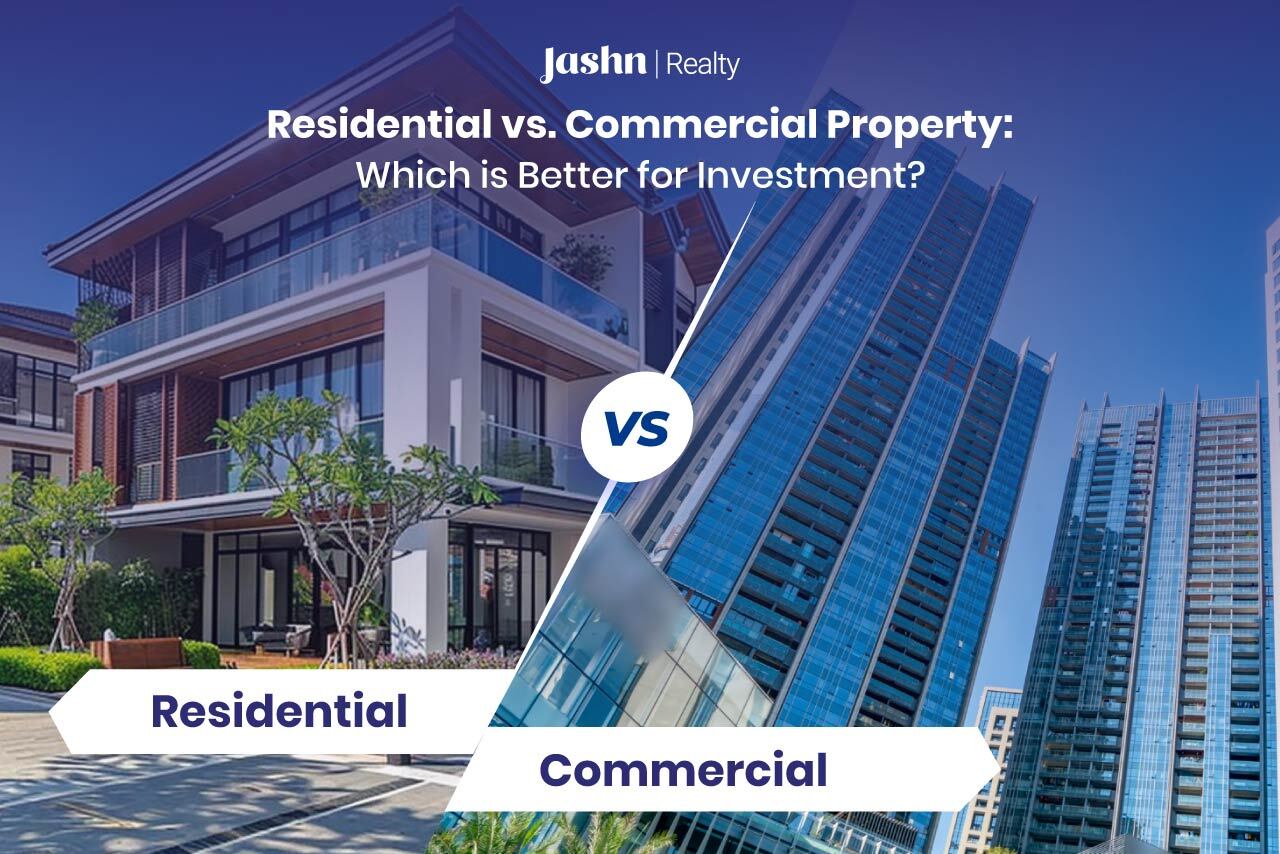Investing in a real estate project offers long-term financial growth. However, people often get confused between residential and commercial properties. Indian real estate has both options available to investors. If you are one of those investors, this residential vs. commercial property guide will help you choose the right property for your needs.
Residential vs. commercial property: Differences
Let’s understand these two types of properties first and then check out differences between them.
What is a residential property?
A residential property refers to a housing unit. It includes homes, residential plots, apartments, townhouses, villas, condos, and more for families and individuals to live in. A residential property is primarily used as a place of residence. If someone asks if an apartment is residential or commercial, you can confidently say it’s residential because it will be used for inhabitance.
Flats for sale in Sushant Golf City Lucknow, or anywhere else, also come in the residential category.
What is a commercial property?
A commercial property is used primarily for business purposes. The examples of commercial properties are warehouses, factories, office buildings, retail spaces, and more.
What are the differences between a commercial and residential property?
Commercial and residential properties signify long-term investments; however, they also have some differences. Each property’s location is according to its purpose. They are regulated by separate laws.
People invest in residential properties to either live in them, generate rental income or seek long-term investment opportunities. On the other hand, people invest in commercial properties to generate higher income by leasing or renting them out. This sometimes involves risks due to long lease terms.
Residential properties are more accessible and offer several flexibilities. Factors like schools, hospitals, and other amenities influence their popularity.
Interest rates, government policies, and economic conditions further influence both commercial and residential projects.
How to choose between a commercial and residential property:
Determine your purpose and investment goals:
Consider your purpose for investing in a property. Find out whether you want higher rental incomes or want to go with a steady but stable income. Based on your findings, you can decide. For example, if you want to earn higher rentals with risk tolerance ability, go with a commercial property. However, if you want to earn a steady rental income, go with a residential one.
Research and analyse the local real estate market:
Conduct a research and analyse the demand for commercial and residential projects in your area. Examine the demand trends, rentals, vacancy rates, and growth opportunities. Don’t forget to consider infrastructural development and future market possibilities.
Examine risks and return:
Assess the risks involved along with potential returns. Commercial projects often come with longer vacancy phases, economic downturn, and tenant turnover.
Evaluate the risk and return potential of each investment option. Commercial properties tend to have higher risk due to factors like tenant turnover, economic fluctuations, and longer vacancy periods. However, they can offer higher rental yields and potentially significant capital appreciation. Residential properties generally offer more stability with consistent demand, but returns may be lower compared to commercial investments.
Assess your budget and affordability:
It’s always a wise step to evaluate your financial capabilities. A commercial real estate project often calls for a large upfront cost, higher down payment, and strict regulations. Residential projects may come into affordable to luxury segments depending upon one’s affordability. Analyse your budget and then go for a suitable property.
Conclusion
If you want to invest in a commercial or residential project, it’s always helpful to understand the differences between the two. Each of these has unique opportunities, challenges, and risks involved. Make sure to analyse your financial stability before making an investment decision.







